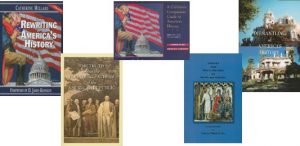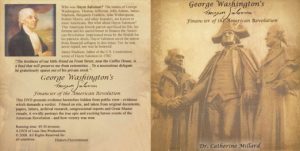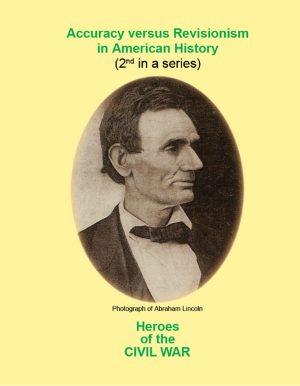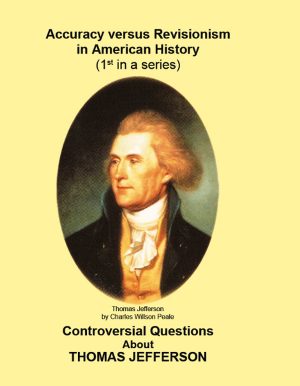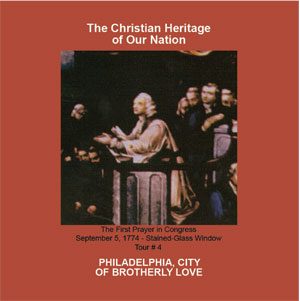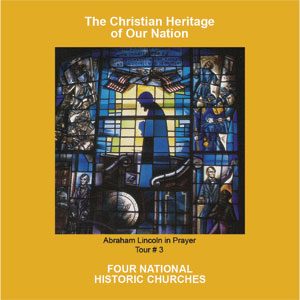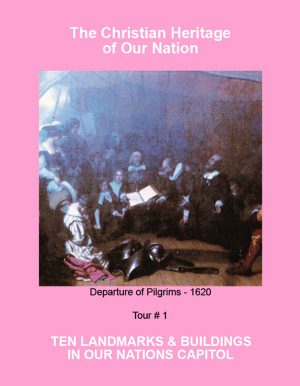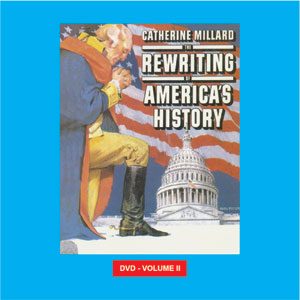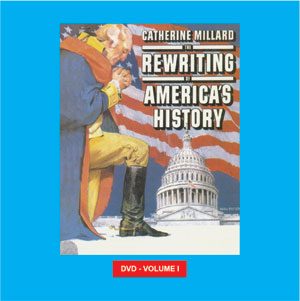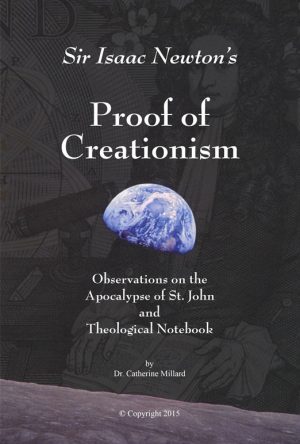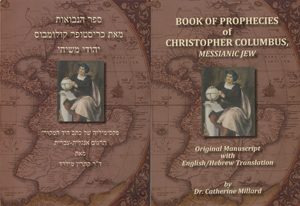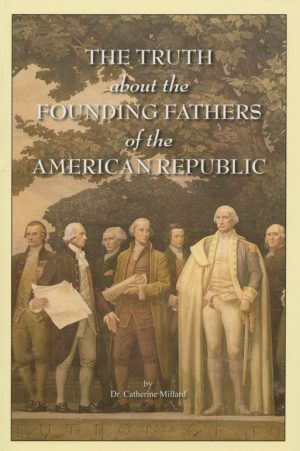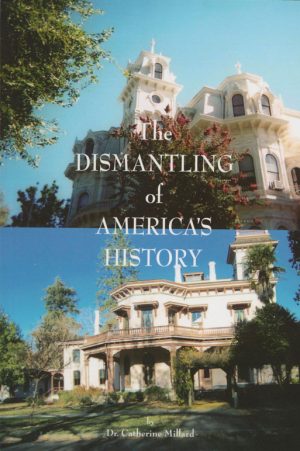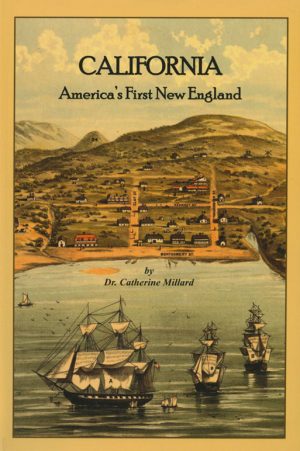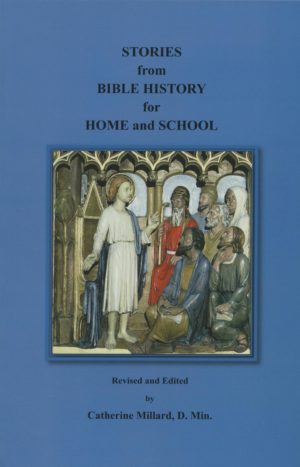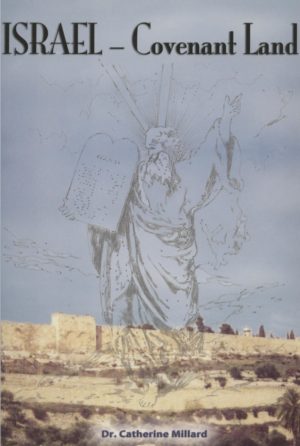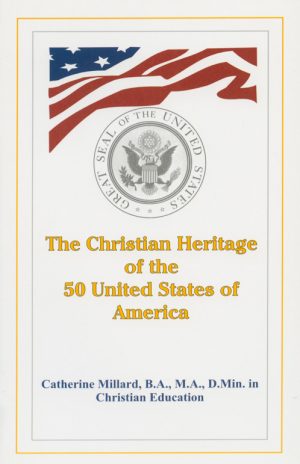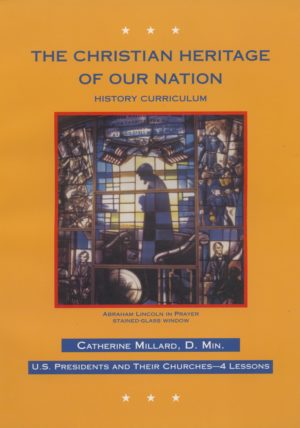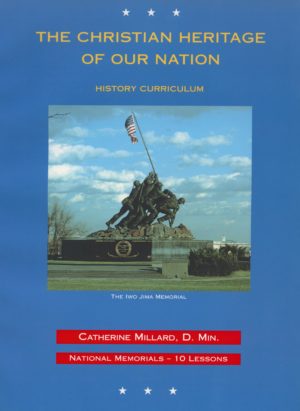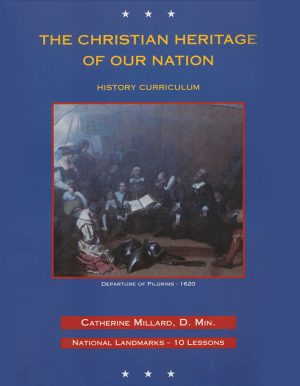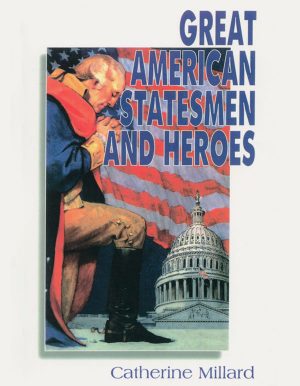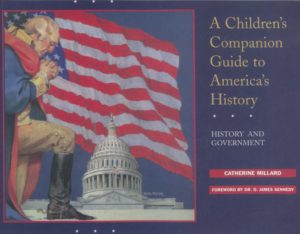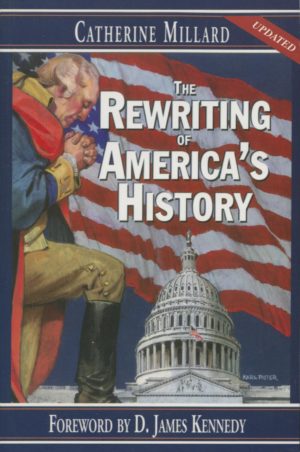| 1723 |
Born on November 30th in Albany, New York |
| 1741 |
Graduated from Yale College
|
| 1748 |
Admitted to the bar |
| 1752-53 |
Publisher of the weekly Independent Reflector
|
1752-62
|
Prepared, with Rev. William Smith, D.D., “A
Digest of the Laws of New York” (1691-1756).
|
| 1772 |
Retired from the practice of Law
|
| 1774 |
Member of the “Committee of Correspondence”
|
1774-76
|
Member of the Continental Congress
(from New Jersey)
|
| 1776 |
Brigadier General of the New Jersey Militia
|
| 1776-90 |
Governor of New Jersey
|
| 1787 |
Delegate to the Constitutional Convention
|
| 1787 |
Signed the Constitution of the United States
|
| 1790 |
Died on July 25th in Elizabethtown, New Jersey
|
Graduating first in his class at Yale – a successful writer, artist, linguist and lawyer – I was taught that William Livingston was a deist. Is there evidence to prove this?
In William Livingston’s 1768 “Letter to the Right Reverend Father in God, JOHN, Lord Bishop of LANDAFF; Occasioned by Some Passages in his Lordship’s Sermon, on the 20th of February 1767, in which the American Colonies are loaded with great and undeserved Reproach,” we find evidence to the contrary. Livingston speaks of “Him, to whom angels and authorities, and powers are made subject” (Jesus Christ); of “the sacred books of the Old and New Testament translated by John Eliot into the Indian language and dispersed among the natives for their instruction in things pertaining to the kingdom of God and Christ;” that “the consequence was Indians met together every Lord’s Day, for the worship of God through Jesus Christ;” that “David Brainard, missionary from Scotland, spent his life bringing the Gospel to several tribes of natives in New-York;” and the importance of furthering “the kingdom of ‘The Prince of Peace.’” (Jesus Christ):
A Letter to Bishop LANDAFF.
My Lord,
In reading Dr. Chandler’s appeal to the public, in behalf of the church of England in America, I met with a long quotation in favour of an American episcopate, from a Sermon preached by your lordship before the incorporated society, for the propagation of the Gospel in foreign parts, at their anniversary meeting in the parish church of St. Mary-le-Bow, on the 20th of February, 1767. This raised my curiosity to procure the Sermon itself; and your lordship will pardon me for saying, that the perusal of it excited at once my indignation and sorrow; – my indignation, that any man should so grossly have abused your lordship’s confidence in his veracity, by the most unparalleled misrepresentation of facts; and my sorrow, that a person of your lordship’s good sense and distinguished character, should have placed any confidence in so impudent an informer. For indeed, my lord, I question whether there be a pamphlet in the nation, that in proportion to the length of the Sermon, contains so great a number of aberrations from the truth.
And as the facts alleged are extremely injurious to the characters of men, and many of them, to the memory of the most excellent persons deceased, (whom we have the greatest reason to believe, have, long since, received the approbation of their and your lordship’s final judge) whoever abused your lordship’s credulity, is on this account, the more inexcusably culpable…It cannot therefore, I humbly presume, be deemed officious or impertinent, in vindication of the characters so unjustly defamed in your lordship’s Sermon, to remove those prejudices you have unfortunately imbibed; or to prevent their being farther diffused, and more deeply riveted, by a discourse, which from the dignity of its author, must naturally carry great weight, and make very durable impressions….
Your lordship says, page 6, “Since the discovery of the new world, the same provision hath not been made of Ministers, necessary to the support of Christianity among those who removed thither, especially in the British colonies.”
This, my lord, affirmed of the colonies without discrimination, is so contrary to truth, that with respect to many of them, they exceed perhaps in such provision, every other part of the Christian world. In the New-England colonies particularly, they have from their earliest settlement been peculiarly attentive to the most ample provision of a Gospel Ministry. Their legislative acts, from the commencement of those colonies, abundantly evince this attention. By these, provision is always made for the establishment and support of the Gospel Ministry in every new-erected township; and without such establishment, within three years from the settlement, the grants are liable to an absolute forfeiture. In consequence of this provision, with the Divine blessing on their pious endeavours, Christianity has not only been supported, but so faithfully preached, and so zealously inculcated, that I will venture to affirm, there is not a more virtuous, not a more religious people upon the face of the earth. Indeed, my lord, from the most authentic accounts respecting the state of religion in England, I have reason to think, they surpass both in the theory and practice of Christianity, those who have the advantage of enjoying it under the supports of a legal establishment, and are perpetually basking in the full sunshine of episcopal preeminence. Nay, I doubt not your lordship will readily admit, that notwithstanding the millions expended on the dignitaries of the church, and the boasted advantage of episcopal ordination, the people of England do not outshine in purity of morals, either the Protestant cantons of Switzerland, the republic of Holland, or the church of Scotland; all which however know nothing about episcopacy, except, as these colonies, I mean, at a convenient and comfortable distance…
Let it suffice to inform your lordship, as what may be depended upon for matter of fact, that there are now within the bounds of New-England, not less than five hundred and fifty ministers, some of the Presbyterian, but the greater part of the Congregational persuasion, regularly set apart to the pastoral charge of as many Christian congregations, having been previously qualified with Divine and human literature in the course of a liberal education, at some of their Colleges. They are, moreover, men of irreproachable lives, and orthodox in principle, who discharge their sacred function in the manner that does honour to the Holy Religion they profess. And can it be said, my lord, with the least appearance of truth, of such a country as this, (a country so thinly inhabited, and so recently emerging out of a state of political non-existence) that it has “not made a provision of ministers necessary for the support of Christianity?” In truth, my lord, however the people of Britain may, on account of their remote situation from us, be prevailed on to credit such marvelous reports, the North-Americans could not be more astonished…
Your lordship proceeds, “A scandalous neglect (to wit, this, of not making provision for ministers) which hath brought great and deserved reproach both on the adventurers, and on the government whence they went, and under whose protection and power they still remained in their new habitations.”…With respect to the protection which the mother country hath afforded us, your lordship has no reason to triumph. Many of the colonies were not only settled without her protection, but by reason of her persecution and intolerance. The emigrants fled from her, into the wilds of America, to find an asylum from those usurpations over the consciences of men; which it will be an eternal blemish on her character, that she so wantonly exercised. After having forsaken houses and lands, and the most tender connections, with everything dear and estimable amongst human kind, for the undisturbed fruition of the rights of private judgments, sacred by the laws of God and of nature, they had to encounter, without the protection of the government, the sanguinary savages of the desert, with all those unspeakable difficulties of settling a new world in a howling wilderness; which nothing but an inflexible trust in God, and the most infrangible resolution of adhering to their religious principles, could ever have surmounted. A character thus, my lord, that will, in the opinion of all impartial men, make a brighter figure in history, than can possibly be acquired by haranguing on the excellency of Christianity from the downy couch of security and ease; or recommending the propagation of it among pagans, the orator the meanwhile, remaining at the salutary distance of three thousand miles from the scene of action.
Your lordship proceeds in the following words. “To the adventurers, what reproach could be cast heavier than what they deserved? Who, with their native soil, abandoned their native manners and religion; and er’e long were found in many parts without remembrance or knowledge of God, without any Divine worship, in dissolute wickedness, and the most brutal profligacy of manners. Instead of civilizing and converting barbarous infidels, as they undertook to do, they became themselves infidels and barbarians. And is it not some aggravation of their shame, that this their neglect of religion was contrary to the pretenses and conditions under which they obtained royal grants, and public authority to their adventures? The pretenses and conditions were, that their design was, and that they should endeavor the enlargement of commerce, and the propagation of the Christian faith. The former they executed with sincerity and zeal; and in the latter most notoriously failed.”
It is certainly to be presumed, my lord, that you were not personally acquainted with any adventurers who died a hundred years before your lordship was born. Nor from any history of that people, could so disgustful a description be collected, there being no account of them extant, but what does honour to their moral and religious character. Nay, my lord, so far from deserving to have their memories stigmatized with so uncommon a brand of infamy, that they were remarkable for all the opposite virtues. Instead of living without the remembrance or knowledge of God, they maintained a constant sense of the Deity, to whom, for His preservation of them amidst the perils of great deep, and their deliverance out of the hands of their persecutors, they conceived themselves under renewed and additional obligations. Their lives were suitable to those devout sentiments. Instead of living without Divine worship, their first care was to found churches, to found Colleges for the support of the public worship of God. Nor have those colonies from their first settlement to this day, been without provincial laws, to enforce an attendance on public worship, and punish the profanation of the Sabbath. Laws religiously observed, and not wantonly violated, as in London, where the Lord’s Day is less distinguishable by a proportionate appearance of religion, than a partial depopulation of the city, disgorging her myriads to revel in the country, and spend that consecrated portion of time, (to borrow your lordship’s expressive, and in this place, most opposite language, in more than mere dissipation even) in dissolute wickedness. So far from being dissolutely wicked, that they were remarkable not only for their sobriety, temperance, chastity and gravity, but moreover for a kind of precision and rigidness of manners, very prevalent in the nation at the time of their departure; but which King Charles the Second, and his profligate courtiers soon laughed out of it; and together with it, a great deal of real and substantial piety, which all the English clergy, with their united efforts, have not been able hitherto to restore to the same flourishing and vigorous condition.
With respect to their brutal profligacy of manners; the charge, my lord, is so gross, and the contrary so universally known to be true, that an attempt to refute it, after what has already been said (and for which I vouch every history of that people) would be a manifest misspending of your lordship’s time….It would be like the hardship complained of by Archbishop Tillotson, in his Sermon against transubstantiation, that it might well seem strange if any man should write a book to prove that an egg is not an elephant, and that a musket bullet is not a pike…
But if your lordship means by their native religion, an implicit submission to ecclesiastico-political power arbitrarily assumed, and tyrannically exercised; or, a recognition of any man on earth, as supreme head of the Christian Church, in derogation of the transcendent authority of Him, to whom angels and authorities, and powers are made subject:a or a superstitious attachment to rights and ceremonies of human invention, to the neglect of vital piety and purity of heart; it is agreed, my lord, that in this sense, they did in good earnest abandon their native religion; and ’tis devoutly to be wished, their posterity may never be so infatuated as to resume it…
May I now entreat your lordship’s patience, while I recount, by way of contrast, some of the attempts of those adventurers and their posterity, in the execution of the laudable purpose of civilizing and converting barbarous infidels.
It appears by a Sermon of Dr. Cotton Mather, printed in the year 1698, that there were then in the province of the Massachusetts-Bay, more than thirty Indian assemblies, for religious worship; and above three thousand Christian Indians. “The Sacred Books of the Old and New Testament, were, in their day, by the skill and labour of the indefatigable Eliot, translated into the Indian language; and dispersed among the natives for their instruction in things pertaining to the kingdom of God and of Christ. For this purpose, he made himself first acquainted with their language; when thus accomplished, he preached to them in their own tongue, and in many of their villages; and by the blessing of God, on his diligent endeavours, many believed and turned to the Lord. He soon had several companions and afterwards successors, who were faithful and zealous in instructing these savages in the Gospel-method of salvation. Schools were erected among them, and such books put into their hands, in their native language, as their edification called for. The consequence was, that in several villages, Indians met together every Lord’s Day, for the worship of God through Jesus Christ, and churches of them were gathered, who walked in the fear of the Lord, and the religious observation of all Gospel ordinances. To the Bible, Mr. Eliot added, a version of the Psalms in Indian metre; which it was their practice to sing. This Indian Bible is the only one that was ever printed in this hemisphere of the universe.” After being made acquainted with the above facts, I doubt not, if your lordship’s Sermon should ever be re-printed, you will at least think it proper, to except that worthy and venerable servant of God, Mr. Eliot, out of the number of those, who, “instead of civilizing and converting barbarous infidels, became themselves infidels and barbarians.” For my part, I cannot but think, that the laborious work of learning an Indian language; of translating the Holy Scriptures into that language, and of spending one’s life amongst savages, inevitably subject from their manner of living to innumerable inconveniences, for the benevolent purpose of instructing them in the Christian Religion, justly merits a note of approbation, from the pen of a Christian Bishop. Could any of the society’s missionaries, my lord, boast so illustrious an instance of labour, fatigue, patience, and self-denial; in what splendid and glowing colours might we not expect to find it immortalized; when their usual exploits of baptizing a few infants or negroes, which might have been done by others at less than a tenth part of the expense, or the reading a borrowed Sermon, to persons in the full enjoyment of all Gospel ordinances, is annually celebrated with notable ostentation and applause; to the great consumption of the paper manufactory, and the no small effusion of episcopal ink!
What follows, my lord, is extracted from the Rev. Mr. Thomas Prince’s general account of the English ministers, who resided at Martha’s Vineyard.
“Mr. Thomas Mayhew, son of an excellent man of this name, began, in another part of the province, the work of gospelizing the infidel-natives, so far back, as 1642. And this good work, has been carried on by one and another of this name and family, from that day to this. In 1657, many hundred Indian men and women, were added to the Christian societies, in this part of the country, of such as might be said to be “holy in their conversation;” and that did not need for knowledge, to be taught, “the first principls of the oracles of God;” besides many hundreds of more superficial professors. In the year 1689, the Indian church, under the care of Mr. John Mayhew, son of the above Thomas, consisted of a hundred communicants, walking according to the rule of the Scriptures.”
I shall now, my lord, beg leave to lay before your lordship, an historical quotation from Dr. Chauncey’s remarks, on certain passages in your lordship’s Sermon. The Rev. Mr. Experience Mayhew, son of the before-mentioned John, and father of the late memorable Dr. Mayhew, a gentleman of such superior natural endowments, that he would, had he been favoured with common advantages, been ranked among the first worthies of New England; and who spent a life protracted several years beyond eighty, in the service of the Indians, published in the year 1727, an octavo volume, entitled, ‘Indian Converts;’ in which he has given an account of the lives of thirty Indian Ministers, and above eighty Indian men, women and young persons, within the limits only of Martha’s Vineyard, an island in the Massachusetts province. And of these, as he was a gentleman of established reputation, “for both judgment and veracity, it may be charitably said, they were all real converts, to the faith of Christ, and some of them in a distinguishing degree, clearly evidenced by their manner of life; which was such, as may make many English professors blush, of whom it may be hoped, that they are Christian in truth, as well as name. In the attestation to this account, signed by eleven Boston ministers, some of whom are now alive, it is said, “that they who may ignorantly and imperiously say, nothing has been done, may be confuted; and that they, who are desirous to see something that has been done, may be entertained and gratified; here is now exhibited a collection of examples, wherein the glorious grace of our great Redeemer has appeared to, and on, the INDIANS of New-England. It must not be imagined, these are all that could have been collected; for all these are only selected from one island.” – We again say, his truth may be relied on, his fidelity is irreproachable…
And what hath not been attempted in times of more modern date, for the advancement of the same glorious design? “There are at this day,” says that reverend and learned Divine, Dr. Chauncey, already mentioned, “within the province of the Massachusetts-Bay only, sixteen ministers, English and Indian, statedly laboring, as pastors of so many Indian churches, or as preachers to assemblies of Indians, that meet together for Divine worship; nine English lecturers, and seven stated school-masters, besides occasional ones; all which are under the care of commissioners here, from the honourable company for the propagation of the Gospel in New-England, and parts adjacent in America. The above account was handed to me from the records of the above commissioners. There are at the settlement called Mashpe, two hundred Indians, under the care of the Rev. Mr. Hawley, who know no God besides the ever-living Jehovah, and statedly pay worship to Him, through the one mediator, Jesus Christ.” Doth this, my lord, look like a notorious failing, in their endeavours to propagate the Christian faith? Does this look like becoming themselves infidels and barbarians?
It is now above thirty years since an Indian mission hath been established at Stockbridge, on the borders of the Massachusetts-Bay, and executed by dissenting ministers. Accounts of this undertaking are in print; and the society’s missionaries could be at no loss to procure them. Mr. David Brainard, a dissenting minister, and missionary from the Society in Scotland, for Propagating Christian Knowledge, spent his life in gospelizing several tribes of the natives, both in the province of New-York and New-Jersey. Being of too delicate of constitution to undergo the hardships to which he was exposed, and too ardently engaged in the work to quit it, he fell a sacrifice to the cause; and his name ought to be transmitted to posterity with immortal honour. A journal of his labours and success among the Indians, was published by himself in his life-time, and since his decease reprinted in London; so that it appears incredible, that any missionary in New-Jersey should be ignorant of the matter. He was succeeded by his brother, Mr. John Brainard, a missionary from the same society, equally laborious and indefatigable, who is still pursuing the same laudable design.
At Lebanon, in the Colony of Connecticut, Dr. Wheelock,b another dissenting minister, has for some years past carried on a school, for the instruction of Indian children in reading, writing, and the principles of Christianity, with an express view of sending the Gospel among the Indians. Of this he has published a narrative; which it is amazing should never have fallen into the hands of any of the missionaries. Mr. Kirtland, a young gentleman educated at this school, has for three years past, with indefatigable industry, and sometimes at the peril of his life, been propagating the Christian faith amongst some tribes of the six nations. There is now, my lord, in England, an Indian minister, educated at this school, who has for two years past had his Majesty’s brief to make collections for its support, and hath during that time been preaching throughout the kingdom. I am astonished, that a thing so extraordinary in its nature, and so frequently mentioned in the English prints, should not have reached the ears of a person so solicitous as your lordship appears to be, about the propagation of the Gospel amongst our barbarous infidels. Can it be a secret in England, my lord, that his most gracious Majesty, hath, by his royal bounty and liberality, at once encouraged and dignified that undertaking; and thereby set a shining example to all Christian monarchs, not to forget, amidst the arduous affairs of State, the kingdom of THE PRINCE OF PEACE?c Nay, had your lordship only vouchsafed to spare a moment from secular business, during the lst session of parliament, that amiable and pious nobleman, my lord Dartmouth, could minutely have informed your lordship, of the life and progress of that excellent seminary; and that himself was President of a Board of Trustees, for the distribution of the money collected for it in England.
Your lordship is equally mistaken in another fact. In the 19th page of the Sermon I find these words, “The want of seminaries in those parts, for the education of persons to serve in the ministry of the Gospel: A great disadvantage; so great that there is reason to apprehend, it may one day undo all that the society have been for many years laboring to do.”
Strange it is, my lord, and to me utterly unaccountable, that so accurate an enquirer should so egregiously err, in a matter of such general notoriety, as public seminaries of learning. We have no less than six colleges on the continent of North America; which are perhaps more by one half, than are really necessary for the purpose of a liberal education, in the present state of this country. There is a very ancient one in the Massachusetts-Bay.d The contiguous colonies of Connecticut, d New-York, d New-Jersey, d and Pennsylvania, d have each of them one; and the dominion of Virginia d another. That in New-York, being able to boast a most honourable origin; being distinguished by a president, a clergyman of the church of England, as by law established, and founded with a particular eye to the advancement of episcopacy in America, will probably e’er long appear as conspicuous above the rest, as father Aeneas amongst his fellow-adventurers. Such a number of seminaries of learning is amply sufficient, one would imagine, for the education of ministers, to propagate the Gospel throughout the whole extent of the habitable globe. Instead of being deficient in this respect, the most judicious among us, think our public seminaries superfluously multiplied. We want hands, my lord, more than heads. The most intimate acquaintance with the classics, will not remove our oaks; nor a taste for the Georgics cultivate our lands. Many of our young people are knocking their heads against the Iliad, who should employ their hands in clearing our swamps, and draining our marshes. Others are musing, in cogitation profound, on the arrangement of a syllogism, while they ought to be guiding the tail of a plough. It therefore gives me concern, my lord, that your apprehensions of the want of seminaries undoing all that the society have for many years been laboring to do, should unhappily discompose the serenity of your lordship’s mind, even for a single moment. The apprehension is certainly groundless. But I will not venture to promise, my lord, that our supernumerary colleges will not, by diffusing a spirit of inquiry, create a general conviction, that it may, with greater truth be affirmed of the labours of the society, what Grotiuse so modestly said of his own, that they had been lost, nil operose agendo; or that your lordship hath, by preaching and printing the Sermon in question, – done those things which you ought not to have done.
It must indeed, be admitted, that some of our Colleges, for want of professors, and the comparative smallness of their libraries; and others, through a very slender philosophical apparatus, cannot pretend to vie with the universities at home. Considering, however, the infancy of the country, they are far from being contemptible; nor has it ever been remarked, that the clergy of the church of England, who have received their education at any of those seminaries, several of whom have been honoured with the degree of Doctors of Divinity, in England, (Dr. Johnson, Dr. Cutler, Dr. Auchmuty and Dr. Chandler, are instances, which I now recollect), are inferior in literary accomplishments to those who have been educated in the English universities. Be this as it may, it is notorious, that the American colleges are friendly to liberty, and our excellent constitution, and so firmly attached to revolution-principles, and the illustrious house of Hanover, that not one of them, as far as I have been able to learn, hath ever produced (with all humble submission to the famous university of Oxford) a single Jacobite or Tory.
With this, my lord, I shall humbly take my leave, hoping that for the sake of truth, and the cause of religion, especially remembering how greatly your lordship has been deceived in the present case, you will be so gracious for the future, in whatever concerns the American colonies, as to require the highest evidence of which the nature of the thing is capable. And heartily wishing, my lord, (it being easy to see for what purpose these kind of misinformations are calculated) that your lordship may be so successful, and so thoroughly satisfied in the discharge of your episcopal function, within the limits of your present diocese, as never to think it your duty, to exchange the See of Landaff, for an American Bishoprick.
I am,
my Lord,
Your Lordship’s
most obedient humble servant,
The AUTHOR.1
To learn more, click here.
___________________________
Bibliography:
a
I Peter 3:22 (Jesus Christ).
b
Rev. Eleazar Wheelock, A.M., founder of the Indian Charity School in Lebanon, Connecticut, which became Dartmouth College.
c
Isaiah 9:6 – Jesus Christ, the Messiah.
d
Harvard College; Yale College; King’s College (Columbia); College of New-Jersey (Princeton); College of Philadelphia; William and Mary College.
e
Hugo Grotius, “father of International law” – 17th Century Dutch Jurist, author of “The Truth of Christian Religion” in Thomas Jefferson’s Library on Religion, Library of Congress, Rare Book Collection.
1
Livingston, William. A Letter to the Right Reverend Father in God, John, Lord Bishop of Landaff; occasioned by some passages in his Lordship’s Sermon, on the 20th of February, 1767, in which the American Colonies are Loaded with great and undeserved Reproach. New York: Printed for the Author; and to be sold by Garrat Noel, near the Coffee-House. MDCCLXVIII. (1768). Library of Congress Rare Book Collection.
